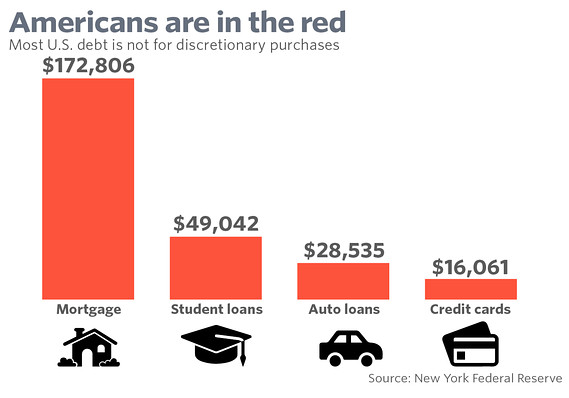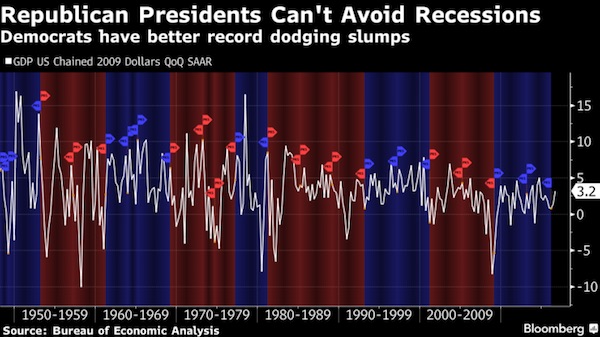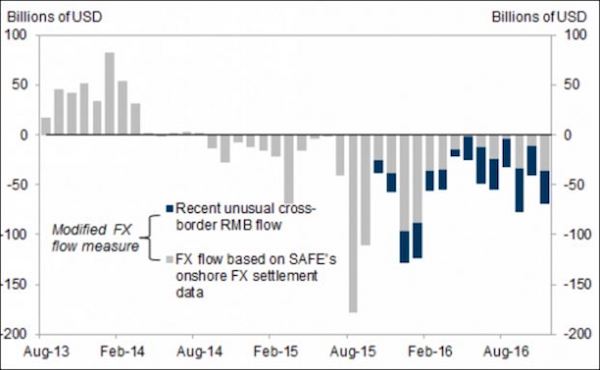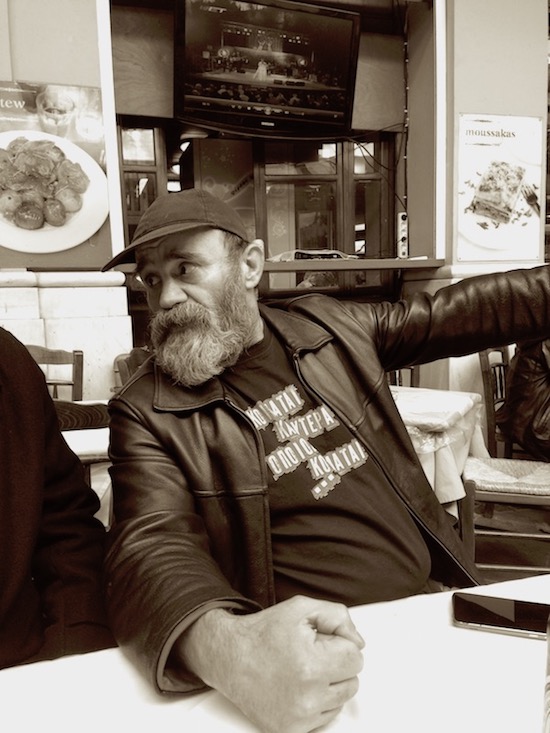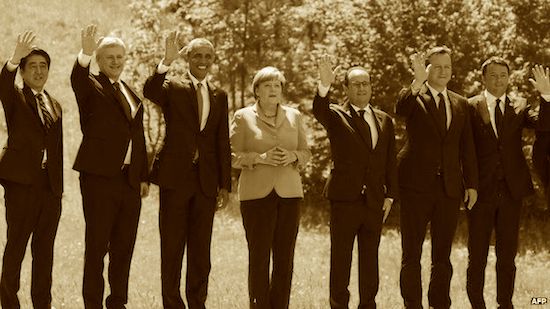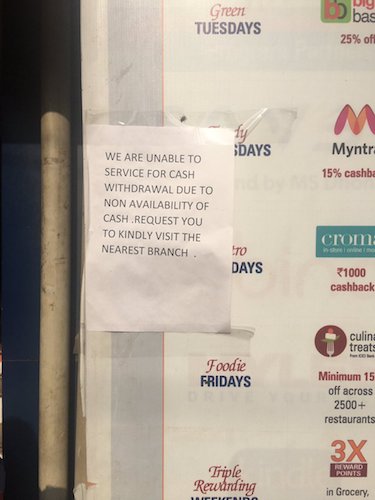
Paul Gauguin Breton girls by the sea 1889

Been reading a lot this morning about the UK, which has a general election in 5 weeks. The antisemitism smears against Jeremy Corbyn are getting much louder for that purpose, while Boris Johnson is trying to squash two allegations against himself, one a police investigation into a deal he made with an American woman he allegedly had an affair with, the other a report that a number of Russian billionaires donated hefty sums to the Tory party. But I’ll leave that stuff alone for now, there’ll be plenty coming.
Still, it’s striking that the “campaign” is all about these things, and hardly about policy. Though of course Labour’s plans to change Britain are attacked by the entire press for being unaffordable.

Craig Murray in this article links to an Aug 4 article he wrote, that said:
“..what should have killed off “Russiagate” forever is the judgement of Judge John G Koeltl of the Federal District Court of New York. In a lawsuit brought by the Democratic National Committee against Russia and against Wikileaks, and against inter alia Donald Trump Jr, Jared Kushner, Paul Manafort and Julian Assange, for the first time the claims of collusion between Trump and Russia were subjected to actual scrutiny in a court of law. And Judge Koeltl concluded that, quite simply,the claims made as the basis of Russiagate are insufficient to even warrant a hearing.”
He also says here, as I have often said myself, that there never was a link between Russia, Assange and/or Roger Stone. As if that is not glaringly obvious enough.
• Post Testimony Interview with Randy Credico (Craig Murray)
Following his appearance as the main witness for the prosecution against former Trump aide Roger Stone, my good friend Randy Credico has had the entire American mainstream media chasing him for an interview. He has however decided to give only this single interview to me, which is put out here and which is free for everybody to use, with acknowledgement.
Five of the seven charges against Stone relate directly to Randy, who is the witness that Stone is accused of tampering with and attempting to intimidate. There is a tremendous irony here. The Mueller investigation was set up to reveal links between the Trump campaign, Russia and Wikileaks. There are no such links, as has already been proven in another US court. Roger Stone ends up being charged with lying to the Senate Intelligence Committee, by pretending he had links to Wikileaks when he did not. He is also charged with trying to intimidate Randy into saying there was such a link and Randy was the back channel; which I myself can attest is nonsense.
The Mueller investigation has thus ultimately ended up prosecuting people for telling the same pack of lies that Mueller himself was pushing. The Clinton media, including CNN, the Washington Post and New York Times, are baffled by this. They follow the Stone trial assiduously from delight in seeing a long term Trump hanger-on brought down, and in the hope something will come out about Wikileaks or Russia. Their reporting, as that of the BBC, has been deliberately vague on why Stone is being charged, contriving to leave their audience with the impression that Stone’s trial proves Trump connections to Wikileaks and Russia, when in fact it proves the precise opposite. A fact you will never learn from the mainstream media. Which is why I am doing this at 2am on a very cold Edinburgh night, for the small but vital audience which is interested in the truth.

Why would the GOP bother anymore? They won’t get their witnesses. This is fast becoming a banana republic-style show trial.
• Nunes Demands Schiff -After Lying-, Whistleblower And Hunter Biden Testify (ZH)
Rep. Devin Nunes (R-CA) made a formal request that House Intelligence Committee Chairman Adam Schiff (D-CA) testify in a closed-door session as part of the impeachment inquiry against President Trump. “Prior to the start of your public show trial next week, at least one additional closed-door deposition must take place,” reads a Friday letter from Nunes to Schiff. “As the American public is now aware, in August 2019 you and/or your staff met with or talked to the whistleblower who raised an issue with President Trump’s phone call with Ukrainian President Zelensky. Although you publicly claim nothing inappropriate was discussed, the three committees deserve to hear directly from you the substance and circumstances surrounding any discussions conducted with the whistleblower, and any instructions you issued regarding those discussions.”
“Given that you have reneged on your public commitment to let the committees interview the whistleblower directly, you are the only individual who can provide clarity as to these conversations,” the letter reads. Schiff lied about his office’s contacts with the whistleblower – initially claiming “We have not spoken directly with the whistleblower,” when in fact the whistleblower, now known as CIA officer Eric Ciaramella, reached out to a committee aide who directed him to Democratic attorney Mark Zaid (who proudly obtained government security clearances for pedophiles and enjoys walking around children’s theme parks alone). That said, Schiff maintains he hasn’t personally spoken with Ciaramella, and that his committee was only given vague information as to the nature of the complaint.
Republicans, meanwhile, are gearing up for the public hearings by assembling a list of proposed witnesses – although Democrats have the final say over who can appear. Nunes’ and Republicans’ effort to devise a strategy going forward comes after the House approved rules for the impeachment inquiry process last week. While Republicans opposed the resolution and complained the rules were unfair, Democrats still gave GOP lawmakers the ability to subpoena witnesses with the concurrence of Democratic committee chairs. If the chair does not consent, the minority can appeal to the full committee.
This process still gives Democrats final say over witnesses. A GOP source told Fox News this week that it’s unlikely Democrats would go along with the efforts to call Schiff — who is essentially leading the impeachment probe. -Fox News On Saturday, Nunes wrote another letter to Schiff with a list of witnesses the GOP would like to call, including Joe Biden’s son Hunter and Ciaramella.

That’s just his opinion and interpretation. How did that become the law?
• Schiff Says Whistleblower Testimony Is ‘Redundant And Unnecessary’ (CNN)
House Intelligence Chairman Adam Schiff made clear on Saturday that the Ukraine whistleblower won’t be testifying in the impeachment inquiry, arguing that the individual’s testimony would be “redundant and unnecessary.” House Republicans earlier Saturday had submitted a list of witnesses to Democrats that they’d like to testify as part of the chamber’s impeachment inquiry into President Donald Trump and Ukraine. The list included the whistleblower and former Vice President Joe Biden’s son Hunter Biden. In a letter obtained by CNN, Schiff goes further than he did earlier in the day when he said in a statement that his committee would evaluate the witness requests and “give due consideration to witnesses within the scope of the impeachment inquiry, as voted on by the House.”
“The impeachment inquiry, moreover, has gathered an ever-growing body of evidence — from witnesses and documents, including the President’s own words in his July 25 call record — that not only confirms, but far exceeds, the initial information in the whistleblower’s complaint. The whistleblower’s testimony is therefore redundant and unnecessary. In light of the President’s threats, the individual’s appearance before us would only place their personal safety at grave risk,” Schiff wrote to California Rep. Devin Nunes, the top Republican on the House Intelligence Committee.
The comments by Schiff, one of the Democrats in charge of the inquiry, are the clearest yet that the whistleblower won’t testify in the probe, a dramatic shift since the beginning of the impeachment inquiry in September when the individual’s testimony was viewed as paramount. The committee had engaged in a round of private talks to protect the whistleblower while allowing him or her to provide testimony, including disguising the individual’s identity or conducting the interview off-site. But as a parade of witnesses have corroborated the whistleblower’s account, detailing the under-the-radar push by the President and his allies to have Ukraine probe his political foes, and as Trump has stepped up his attacks against the person, Democrats have abandoned the idea of securing the testimony.
In a letter to Schiff earlier Saturday, Republicans had listed the anonymous whistleblower, Hunter Biden, former US special envoy for Ukraine Kurt Volker, high-ranking State Department official David Hale and Tim Morrison, the top Russia and Europe adviser on the National Security Council among the people they wanted to testify. The GOP also requested Nellie Ohr, a former Fusion GPS contractor, and Alexandra Chalupa, a former Democratic National Committee staffer —a sign that Republicans still want to focus on unsubstantiated claims related to the 2016 presidential campaign. “As of right now, they are giving us no witnesses,” Nunes told Fox News’ Jeanine Pirro on Saturday night.

Yovanovitch hates Trump (and Russia too). Why would he let her keep her job? Isn’t it a better idea to work with people who don’t hate you?
• Yovanovitch Communicated With Dem Staffer On ‘Delicate’ Issue (Fox)
Former U.S. Ambassador to Ukraine Marie Yovanovitch, a key witness in House Democrats’ impeachment inquiry, communicated via her personal email account with a Democratic congressional staffer concerning a “quite delicate” and “time-sensitive” matter — just two days after the whistleblower complaint that kickstarted the inquiry was filed, and a month before the complaint became public, emails obtained Thursday by Fox News’ “Tucker Carlson Tonight” show. The emails appear to contradict Yovanovitch’s deposition on Capitol Hill last month, in which she told U.S. Rep. Lee Zeldin, R-N.Y., about an email she received Aug. 14 from the staffer, Laura Carey — but indicated under oath that she never responded to it.
The communication came “from the Foreign Affairs Committee,” and “they wanted me to come in and talk about, I guess, the circumstances of my departure” in May as ambassador to Ukraine, Yovanovitch testified, describing Carey’s initial email. “I alerted the State Department, because I’m still an employee, and so, matters are generally handled through the State Department.” Yovanovitch continued: “So, she emailed me. I alerted the State Department and, you know, asked them to handle the correspondence. And, she emailed me again and said, you know, ‘Who should I be in touch with?'” Fox News is told it is a breach of normal procedure for congressional staff to reach out to a current State Department employee at their personal email address for official business.
Asked directly whether she responded to Carey’s overtures, Yovanovitch testified only that someone in the “Legislative Affairs Office” at the State Department had responded to Carey, to the best of her knowledge. Yovanovitch did not indicate that she had responded to Carey’s first email in any way, and testified explicitly that she did not reply to Carey’s follow-up email concerning whom she should contact at the State Department. However, emails obtained by Fox News’ “Tucker Carlson Tonight” showed that in fact, Yovanovitch had responded to Carey’s initial Aug. 14 email, writing that she “would love to reconnect and look forward to chatting with you.”

They are Syrian. Oil. Fields.
• Pentagon Asserts US Military Authority Over Syrian Oil Fields (CD)
Pentagon officials asserted Thursday U.S. military authority over Syrian oil fields because U.S. forces are acting under the goal of “protecting Americans from terrorist activity” and would be within their rights to shoot a representative of the Syrian government who attempted to retake control over that country’s national resource. The comments came from Pentagon spokesperson Jonathan Hoffman and Navy Rear Admiral William D. Byrne Jr. during a press briefing in which the two men were asked repeatedly about the legal basis the U.S. is claiming to control Syrian oil fields. The briefing came less than two weeks after Defense Secretary Mark Esper said, “That’s our mission, to secure the oil fields” in the Deir ez-Zor area of eastern Syria.
President Donald Trump’s comments before and after that remark —”We’re going to be protecting [the oil], and we’ll be deciding what we’re going to do with it in the future,” and “The oil… can help us, because we should be able to take some”— were seized on by critics who claimed Trump was suggesting violating international law by plundering another country’s resources and openly saying the U.S. was pursuing war for oil. Hoffman, in his comments Thursday, gave a different message—that “the revenue from this is not going to the U.S. This is going to the SDF,” referring to the Kurdish-led and U.S.-allied Syrian Democratic Forces, who are battling ISIS. Byrne claimed that the U.S. has been waging the oil field control mission alongside SDF and that the goal was to prevent ISIS from obtaining the oil revenue.
But, as one reporter pointed out, ISIS fighters “have no armor. They have no aircraft.” “Do they have the capability to actually seize the oil fields?” the reporter asked. “And isn’t this really about Russia and Syria seizing those oil fields?” Hoffman replied that the goal was “to prevent a resurgence” of ISIS which would be facilitated if the terrorist group had access to the oil revenue.

Bankers in jail? What?
• Italian Court Convicts DB, Nomura In Monte Paschi Derivative Trial (R.)
An Italian court has convicted 13 former bankers from Deutsche Bank, Nomura and Monte dei Paschi di Siena over derivative deals that prosecutors say helped the Tuscan bank hide losses in one of the country’s biggest financial scandals. The verdict, read in court on Friday by lead judge Lorella Trovato, also ordered fines and asset seizures worth a total of €68 million from Deutsche Bank and €91.5 million from Nomura. Monte dei Paschi reached a settlement with the court over the case in 2016 at a cost of €10.6 million. The case centres on two complex derivatives transactions – known as Alexandria and Santorini – that Nomura and Deutsche Bank arranged for Monte dei Paschi in 2009.
Prosecutors said the deals helped Monte dei Paschi, which was founded in 1472 and is Italy’s fourth biggest lender, hide more than €2 billion of losses racked up after the costly acquisition of a smaller rival in 2008. [..] Monte dei Paschi’s former chairman Giuseppe Mussari, one of five former executives from the Tuscan bank on trial, was given the heaviest sentence of seven years and six months in jail. Deutsche Bank and Nomura were both convicted as institutions for failing to prevent wrongdoing by their employees. All six defendants linked to Deutsche Bank and the two who once worked for Nomura were handed jail terms.
They include sentences of four years and eight months each for Ivor Dunbar, former co-head of Global Capital Markets at the German bank, Michele Faissola, its former head of Global Rates, and Michele Foresti, its former head of Structured Trading. Nomura’s former chief executive for the EMEA region, Sadeq Sayeed, was also given a sentence of four years and eight months while Raffaele Ricci, the former head of the bank’s EMEA Sales, was handed a sentence of three years and 5 months.

The UK has an Editors Code of Practice.
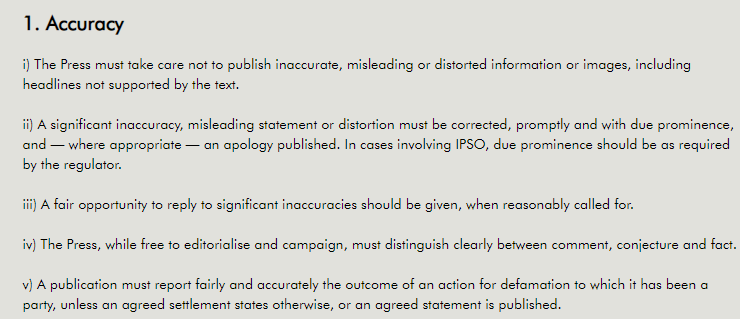

Please support the Automatic Earth on Paypal and Patreon so we can continue to publish.
Top of the page, left and right sidebars. Thank you.




